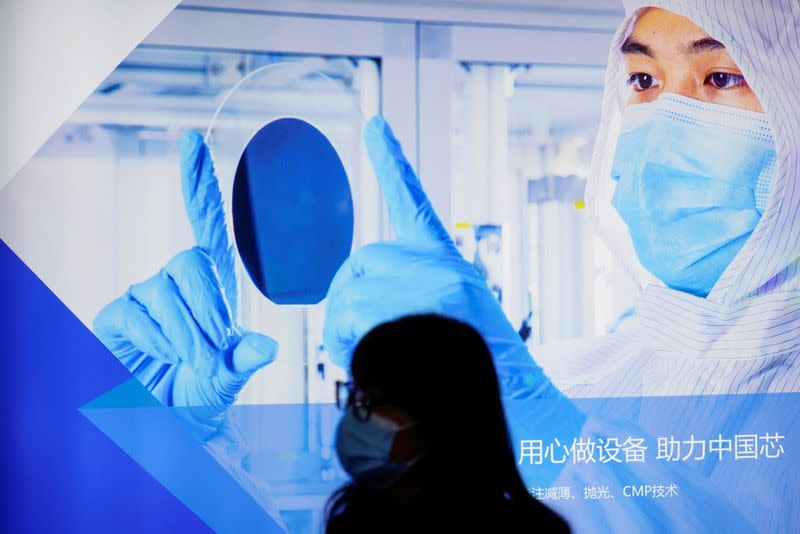The US is set to implement curbs on investments in Chinese technology firms developing advanced chips, artificial intelligence (AI) and quantum computing, according to testimony from a US Treasury official on Wednesday.
Officials are working to restrict investment from the US that “comes with know-how and expertise to certain specific sectors and sub-sectors such as advanced semiconductors, artificial intelligence and quantum computing,” said Paul Rosen, who oversees investment security at the Treasury, in a hearing before a Senate Banking Committee.
Rosen’s testimony, which cited China and its military in particular, comes amid a raging tech war between China and the US, which especially targets Chinese production of advanced chips. US allies Japan and Netherlands have also agreed to extend similar curbs against China as part of the chip war.
Also on AF: ‘De-China’ Move: Tech Owners Keen to Leave, Avoid US Rivalry
Earlier this year, sources said the Biden administration was planning an outright ban on investments in some Chinese technology companies and to increase scrutiny of others.
The plan was part of the US government’s efforts to crack down on the billions that American firms have poured into sensitive Chinese sectors.
China hawks in Washington blame US investors for transferring capital and valuable know-how to Chinese tech companies that could help advance Beijing’s military.
In March, The Australian Strategic Policy Institute found in a study that China had a “stunning lead” in a majority of critical emerging technologies, including AI, advanced materials, quantum technology, electric batteries and nano manufacturing.
The study, funded by the United States State Department, found “China generated 48.49% of the world’s high-impact research papers into advanced aircraft engines, including hypersonics”.
China “hosts seven of the world’s top 10 research institutions”, it added.
US exports to Huawei questioned
Separately, Republican Senator Bill Hagerty asked about efforts to restrict the supply of US origin goods to Chinese telecommunications company Huawei.
Exports to Huawei currently require a licence. Asked about revoking these licences, Commerce Department assistant secretary Thea Rozman Kendler said, “We do not have a draft rule at this time,” but added that “We are under deep analysis of this issue”.
Officials are closely scrutinising a wide range of exports to China in order to stop sales that would advance Beijing’s militarisation.
In 2022, the US reviewed 5,064 export and re-export licence applications and denied or took no action on about 26% of those, Kendler said in written testimony ahead of the Senate Banking Committee hearing.
“We identify sensitive US technologies that would give our adversaries an advantage, develop policies and strategies for protecting these technologies and review licence applications submitted by exporters,” Kendler’s testimony said.
“Countering China”
Assistant Secretary of Commerce for Export Enforcement Matthew Axelrod said the Biden administration has added more than 200 Chinese parties to the export control “Entity List” since coming to power.
Ahead of the hearing titled “Countering China: Advancing US National Security, Economic Security, and Foreign Policy”, Axelrod said the US government aimed to counter China’s “military modernisation, human rights abuses and other activities contrary to our national security and foreign policy interests.”
“We leverage our administrative and criminal enforcement, as well as our regulatory authority, to address the diversion of advanced technologies – like semiconductors, marine engines, and satellite and rocket prototypes – that support China’s military modernisation efforts,” Axelrod wrote in his testimony.
- Reuters, with additional inputs from Vishakha Saxena
Also read:
US Backers Like Intel, Qualcomm ‘Poured Billions’ Into China AI
China Strains, AI Top of The Agenda at US, EU Summit Talks
US Says ‘Won’t Tolerate’ China’s ‘Coercive’ Micron Chip Ban
US Chip Sanctions Have Hardly Impacted China’s AI Capability
China Dominates Clean Energy, as Well as EV Batteries – FP
US Risks ‘Enormous Damage’ With China Chip War: Nvidia CEO – FT
























